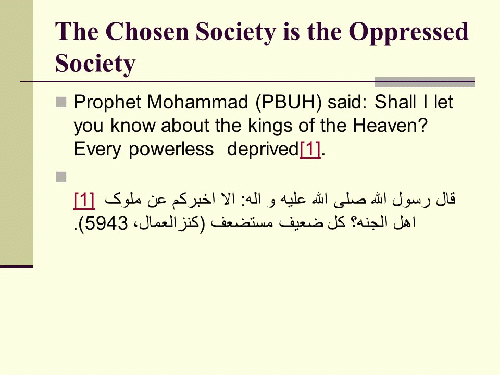I remember as I was finishing my teaching career of 36 years at Berea College in Kentucky that I experienced a spectacular failure regarding Islam.
At a faculty meeting and in the light of the then-recent events of 9/11/01, I had moved that all students be required to study Islam either in a separate required course or as part of an already existing course (on writing or Western Civilization). After a brief discussion, my proposal was put to a vote. It received two (!) "Yeas" and about 148 "Nays" from a faculty of 150. "Next order of business . . . "
Despite going down in flames like that, I still think my proposal was a good one. That's because ignorance of Islam lies close to the heart of our country's highly questionable (not to say bogus) "War on Terror." It is also central to the current epidemic of Islamaphobia whose infection is more dangerous to our country than Ebola.
Even more importantly, as a liberation theologian, I see "Islamists" as part of world-wide movement of poor people who use their religious traditions as a force for freedom rather than control and slavery. In fact, I consider this movement as the most important intellectual and social development since the writing of the Communist Manifesto in 1848. Grasping that fact and the true nature of Islam should be Job #1 for teachers and peace advocates.
Perhaps, like the Berea faculty, you find that assertion difficult to buy. And why shouldn't you? Even in its Christian form, "liberation theology" has been misrepresented and distorted beyond recognition. Why shouldn't we expect even more of the same for its Islamic counterpart?
So let me explain. Begin with the context of my proposal.
Once again, it came in the immediate aftermath of 9/11. On all sides Islam was being vilified as foreign, primitive, terrorist, and anti-female. U.S. military personnel regularly desecrated the Koran.
And their leaders like Lt. Gen. Wm. G. Boykin, were asserting the superiority of "our God" over "their God." Republicans who otherwise ridiculed feminists as "femi-nazis" suddenly became champions of women's liberation as they attacked Islam for preventing women from driving cars and wearing mini-skirts.
All of that made me suspicious. I knew a little about Islam from my poor attempts at teaching an introductory course part of whose intent was introducing freshman students to "world religions." We had read Huston Smith's The Religions of Man. If nothing else, Smith taught me that Islam, Judaism, and Christianity are sister faiths. There is no distinction between "their God" and "our God." All three were "religions of the book." At the very least, all recognized Jesus as a great prophet.
I had also taught Malcolm's Autobiography. His embrace of Islam had called my attention to the attraction of Islam for poor people as an alternative to enslaving interpretations of Christianity. Malcolm's passion for the Nation of Islam easily connected with my own for liberation theology -- i.e. with the reading of the Judeo-Christian tradition from the perspective of those committed to the welfare and destiny of the world's poor.
I remembered that somewhere in the literature of liberation theology, I had read that Islam was today's most prominent example of a "religion of the poor and oppressed." As such Islam was influencing far greater numbers of the world's poor than had Christianity's liberation theology which was largely defeated by the U.S. military in what Noam Chomsky has called "the first religious war of the 21st century." That religious conflict had pitted the U.S. government against the Catholic Church in Latin America.
Understanding Islam as today's foremost expression of the liberating power of faith made the 1979 uprising in Iran a movement inspired by "liberation theology." It did the same thing for other movements for liberation throughout the Asia and Africa. With all their triumphs and distortions, they too were movements against colonialism and its neo-colonial aftermath. In the name of God, they all stood against the exploitation and oppression of the East by the West.
That was true, of course, for "Arab Spring" of two years ago. After all, did you think all those students and others protesting in Tahrir Square had suddenly left behind their devotion to Islam? What do you think motivated them? Had they suddenly become secularists? More obviously, what moved the "Islamic Brotherhood" to oppose the U.S. puppet Mubarak? Or why do you think the Egyptians elected the Brotherhood to lead their country?
Obviously, the motivation was largely found in Islam and in the realization that their faith as exemplified in the life and writing of the prophet Muhammad champions the Arab world's poor in their struggle against the rich who have hijacked both Christianity in the West and Islam in the East.
It's that liberationist understanding of Islam that the West must distort and vilify just as it did Christian liberation theology when it threatened to radically alter the political landscape of Latin America from the Medellin Conference of 1968 to the assassination of El Salvador's most prominent liberation theologians in 1989.
(Note: You can view every article as one long page if you sign up as an Advocate Member, or higher).






